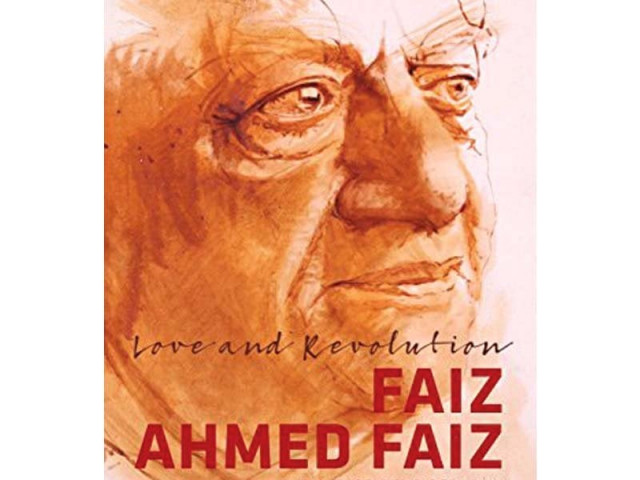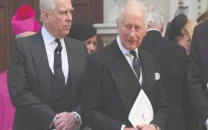Understanding Faiz Ahmed Faiz
Ali Madeeh Hashmi’s ‘Love and Revolution’ reads like a novel, answering many pertinent questions

Ali Madeeh Hashmi’s ‘Love and Revolution’ reads like a novel, answering many pertinent questions
Author Ali Madeeh Hashmi has tried to do just that in his book Love and Revolution | Faiz Ahmed Faiz: The Authorized Biography.
The book opens with an unbearable tragedy that Faiz’s lovers bore: his death and funeral. His last rites were attended by thousands of people who ignored the fact that a despotic military ruler was at the helm of the state and public gatherings were proscribed by him.
So what made people take the risk and bid farewell, the last one, to the great poet of his era? Love and Revolution aims to answer this very question, and that’s how the biography becomes an ‘unputdownable’ book.
Throwback: The journey of Mehdi Hasan’s ‘Gulon Mein Rang’
Faiz’s poetry is replete with the voice of the oppressed; be it labourers, peasants, communist leaders, or the nations that fought for freedom – and are still fighting such as the wretched Palestinians.
His father, Sultan Muhammad Khan, worked as a coolie at the Lahore railway station until he was employed by Afghan high-ups to work for them as an interpreter. That changed his father’s lifestyle, and Faiz enjoyed its perks.
The poet’s life took a turn when his father died and he came to know that he had to pay a hefty amount of debt that his father owed to scores of people. This sudden event transformed him as he faced extreme difficulties to make ends meet, although his brother Tufail Ahmed took upon himself to cater to the family needs.
Love and Revolution is of utmost importance because Hashmi, the author, has cited various excerpts, references from other books on Faiz. He has collected all that was significant, to learn about the people’s poet and put them in one single study material that would surely fascinate readers.
He attempts to clean the dust off the stances Faiz took in his life that were ridiculed by some and supported by others. The poet got himself recruited in the British Army, a surprising step by someone who was always seen against war. The author shares great insight about this decision of Faiz, and quotes him as saying that since the country was fighting against fascism, as was the then USSR, Faiz took it upon himself to fight, with his pen and an incomparable political correctness, against fascist Germany.
Although Faiz always appeared to be hardcore communist mingling with socialist leaders of the Indian subcontinent, he was never formally associated with the Communist Party of Pakistan (CPP) and Hashmi has written about this rather simplistically.
This and many other questions like why Faiz, who was averse to the establishment and state apparatus, joined Bhutto’s government as a culture adviser will be answered for the readers. The author goes on to say that Faiz himself answered the accusations in his poems such as Mere dard ko jo zaban milay and Paon se lahoo ko dho daalo.
Love and Revolution reads like a novel; year by year it traces out the legacy of Faiz and his immortal poetry that is the representative of the times, brutality and oppression that he and the wretched of the earth survived.
As the book ends, the reader will have an uneasy feeling, tearing the heart apart, as soon as it dawns upon them that the great poet who came alive through this beautifully written book is no more; only his memories and feelings in the form of poetry are with us today.
Title: Love and Revolution | Faiz Ahmed Faiz: The Authorized Biography
Author: Ali Madeeh Hashmi
Publisher: Rupa & Co
ISBN: 978-8-12-913777-7
Price: Rs1,135
The writer is a subeditor at The Express Tribune’s Web desk
Published in The Express Tribune, June 12th, 2016.
Like Life & Style on Facebook, follow @ETLifeandStyle on Twitter for the latest in fashion, gossip and entertainment.



















COMMENTS
Comments are moderated and generally will be posted if they are on-topic and not abusive.
For more information, please see our Comments FAQ